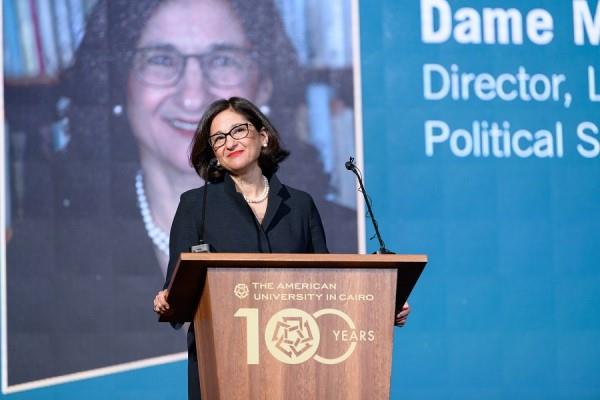
Gap between rich, poor in Egypt shrinking, middle class doing worse: LSE Director
Speaking about how luck can affect a person's life and career as opposed to effort, Shafik discussed Egypt's case, saying 'contrary to popular perception, inequality in Egypt is actually quite low by international standards in part because states in the Middle East have tended to be highly redistributive.'
She also said that introducing programmes to provide needier families with cash in Egypt, like Takaful and Karama, have been hugely important for making sure that nearly between 1.5-2 million families – the poorest in Egypt – have a minimum income that enables them to spend money on things like education and more nutritious food. 'But while the gap between rich and poor in Egypt has actually shrunk. The middle class has done relatively worse.' In the last decade, the percentage of downwardly mobile Egyptians has actually exceeded the number of upwardly mobile Egyptians, she added.Shafik noted, therefore, luck has become more important than effort in driving a person's success, which may be a main factor contributing to the observed decline in life satisfaction of citizens in many polls in Egypt.
Furthermore, Shafik pointed out that in most societies, there is a noticeable decline in social mobility in recent decades. 'I think much of the current malaise we see in countries like Egypt, the United States, and the United Kingdom is because of that. Spreading opportunity through education, throughout life, fairer job opportunities and more real competition, is probably the biggest social challenge that we face. But addressing it is also vital for our economic success. Since getting the most out of our talent is the path to greater prosperity.'Shafik concluded the lecture by answering a few questions by the attendees who included several public figures, university professors, and students.

Legal Disclaimer:
MENAFN provides the
information “as is” without warranty of any kind. We do not accept
any responsibility or liability for the accuracy, content, images,
videos, licenses, completeness, legality, or reliability of the information
contained in this article. If you have any complaints or copyright
issues related to this article, kindly contact the provider above.

















Comments
No comment